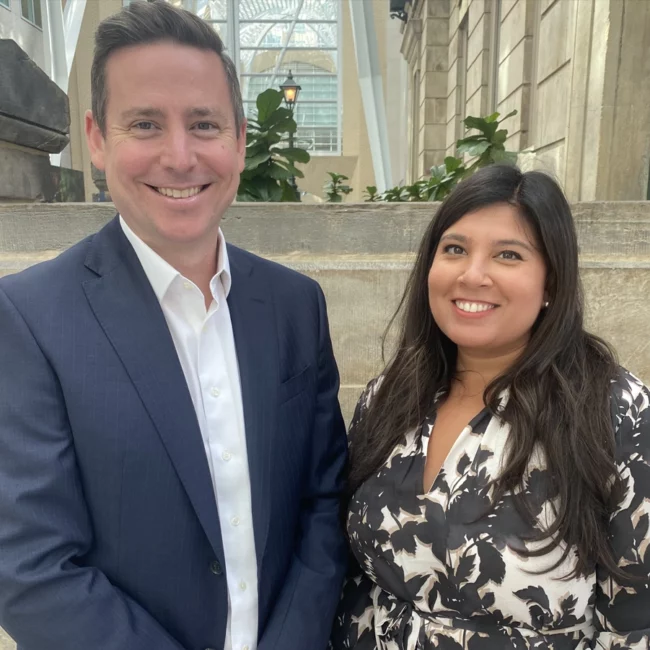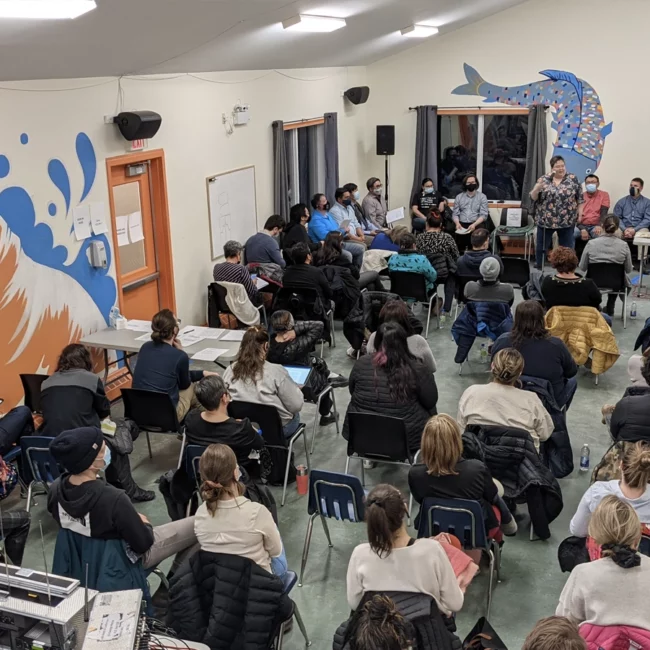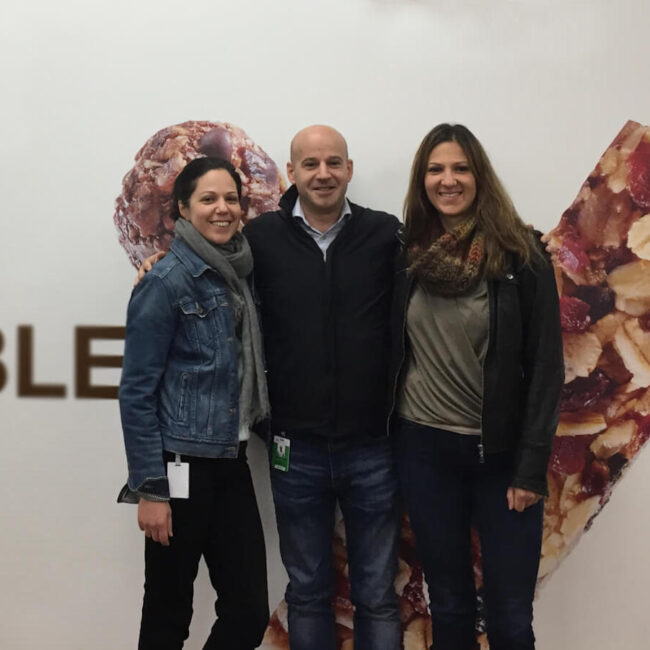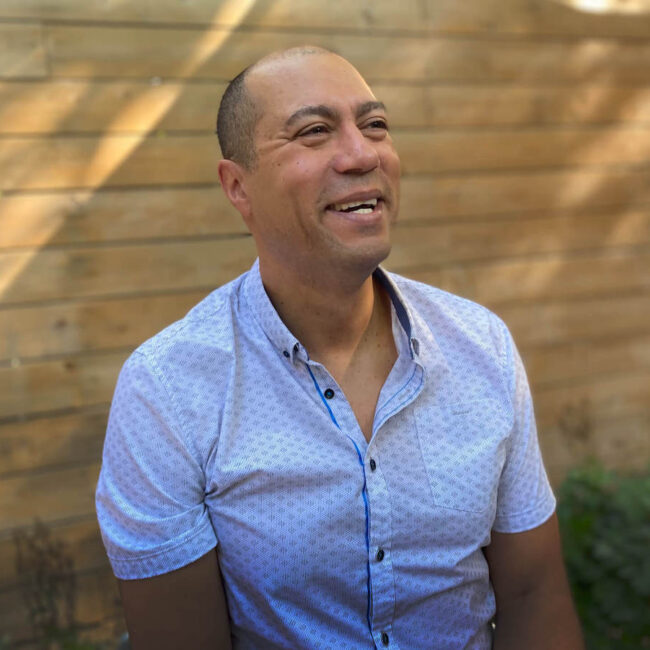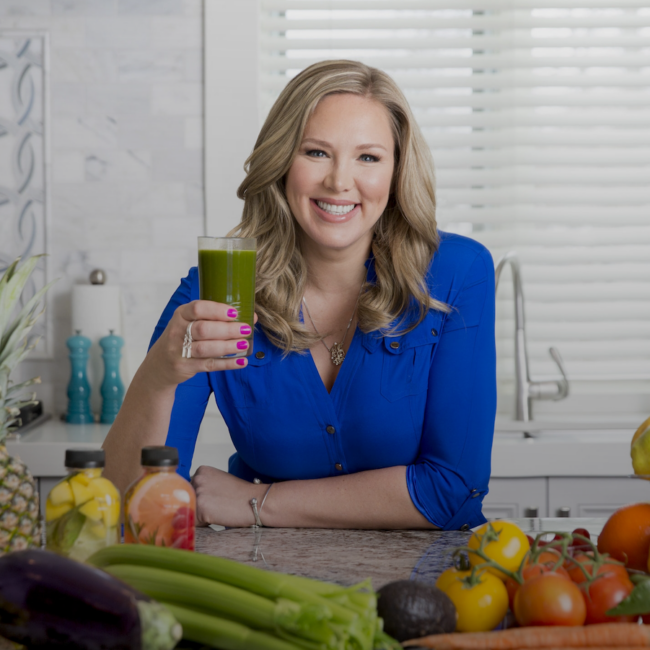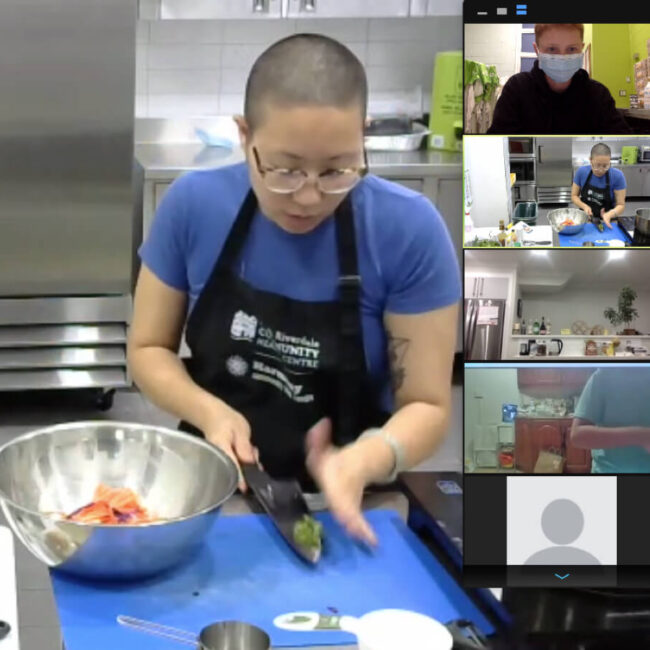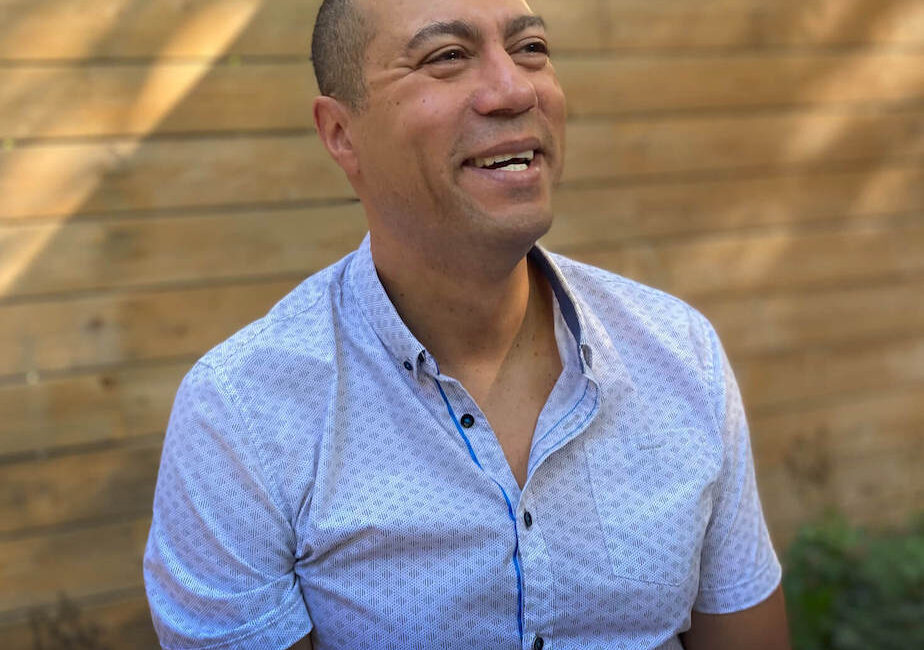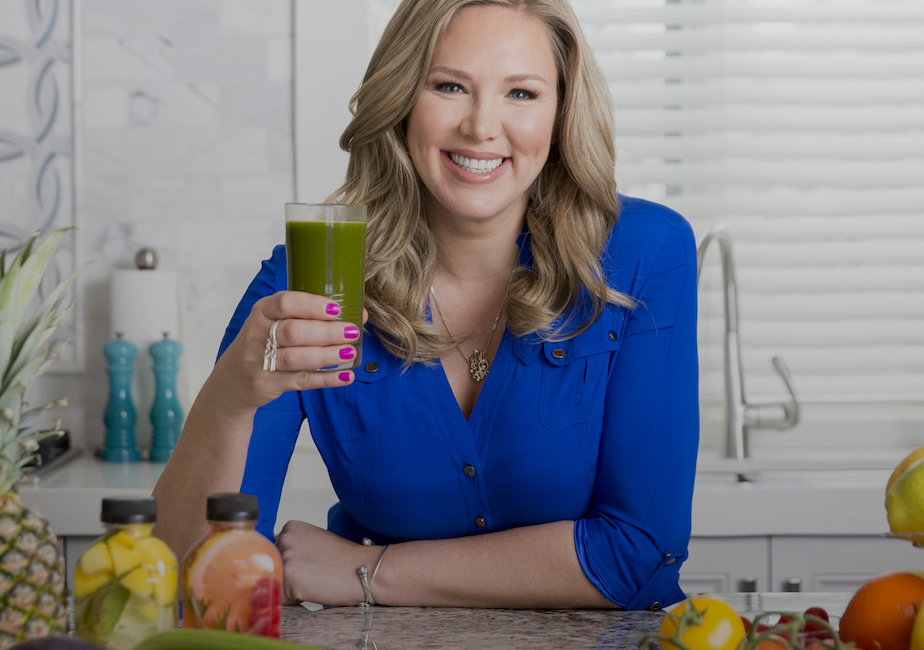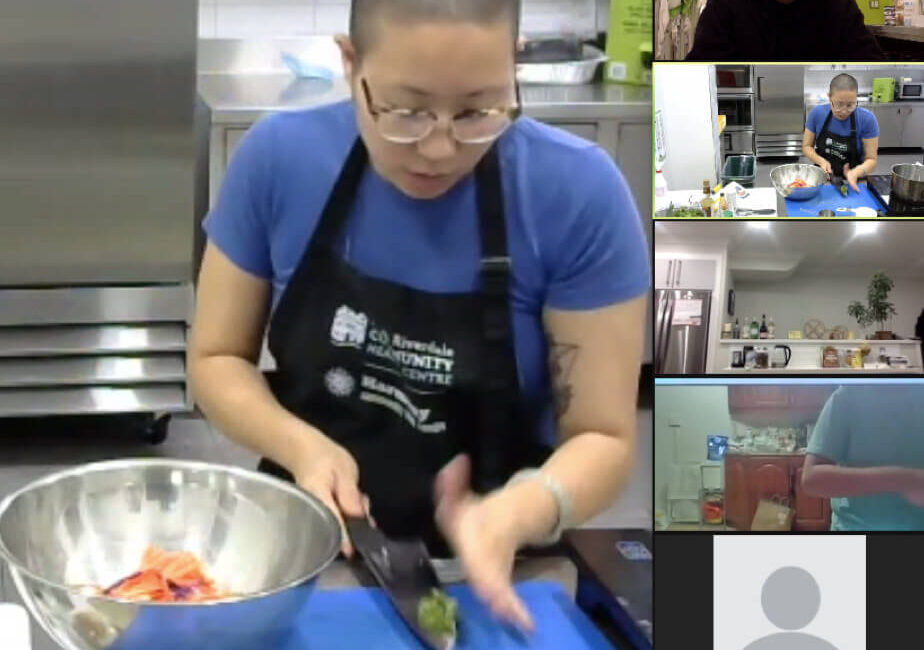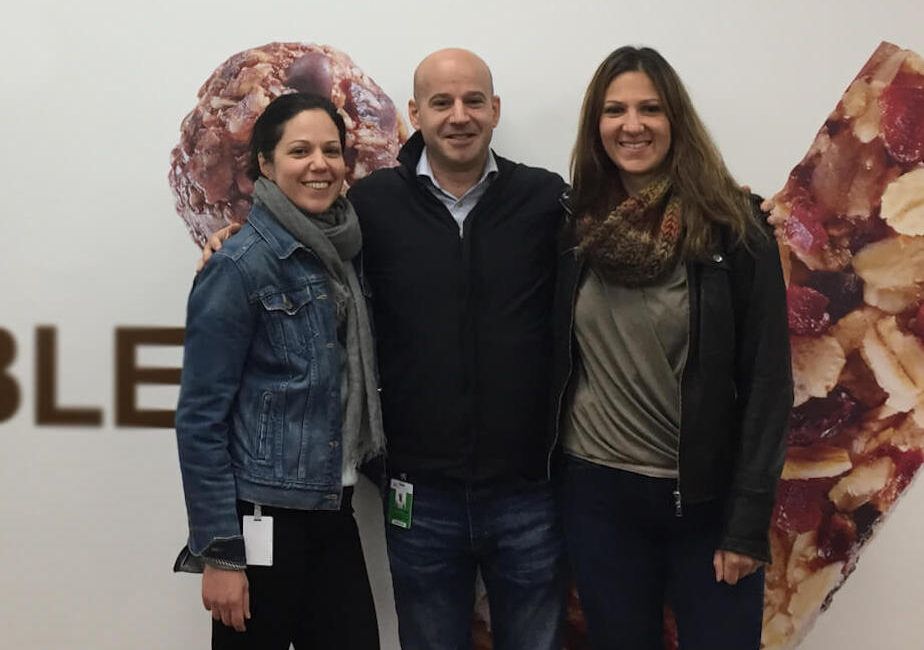A spirit of giving
Over the last decade, donors have made the transformative work of CFCC possible in communities nationwide. We are enormously grateful for their inspired generosity, whether it’s through individual or family gifts, workplace giving, foundations, or at events on farms, in restaurants, and stores across the country. Together, we are building health, belonging, and social justice through the power of food.
Meet some of our donors below.
Seeding the movement
 Metcalf Foundation President and CEO Sandy Houston (pictured here) has been part of the CFCC journey from the earliest days. He remembers fondly when CEO Nick Saul knocked on the door at the foundation and introduced himself. “A pure cold call! And we’ve been connected to the Community Food Centre movement ever since,” Sandy says.
Metcalf Foundation President and CEO Sandy Houston (pictured here) has been part of the CFCC journey from the earliest days. He remembers fondly when CEO Nick Saul knocked on the door at the foundation and introduced himself. “A pure cold call! And we’ve been connected to the Community Food Centre movement ever since,” Sandy says.
“I think one of the core elements [of CFCC] is generosity. A fundamental openhanded approach to knowledge sharing, to community… This work has never been more important than it is right now.”
That was back when there was just one Community Food Centre (CFC) in the country. But in 2010, the Metcalf Foundation funded a key paper exploring the potential for the CFC model to work in communities nationwide. It was greeted with such a groundswell of interest that Nick and cofounder Kathryn Scharf were galvanized to launch the national organization with Sandy as the first Board Chair.
“The model is incredibly potent,” Sandy says. “From the start we had great respect for its elements: human dignity and inclusion, creating a place where food is central, a vehicle for community and self-actualization.”
Metcalf and CFCC have continued to work closely over the last ten years, with core funding and most recently, a three-year grant to help fund the creation of the new Poverty Action Unit, which will focus on policy change and advocacy work.
“It’s been an extraordinarily successful evolution of an organization over a relatively short period of time,” Sandy says. “I think one of the core elements is generosity. A fundamental openhanded approach to knowledge sharing, to community. We are enormously proud to support it—this work has never been more important than it is right now.”
Value added
 “My dad grew up as one of five children in a modest home in east Montreal. He was the son of a printer, newly emigrated to Canada. He and my mother always demonstrated dignity and respect for others,” says Gwen Harvey, President of the Patrick and Barbara Keenan Foundation, named for her parents. “We learned by watching them. Their values continue to guide us.”
“My dad grew up as one of five children in a modest home in east Montreal. He was the son of a printer, newly emigrated to Canada. He and my mother always demonstrated dignity and respect for others,” says Gwen Harvey, President of the Patrick and Barbara Keenan Foundation, named for her parents. “We learned by watching them. Their values continue to guide us.”
“[Our parents] always demonstrated dignity and respect for others… Their values continue to guide us.”
Such values are also part of the DNA of the Community Food Centre movement, which is one of the reasons the Keenan Foundation has been a long-time donor, most recently with multi-year funding focused on working with Indigenous partners. “It was after my father died that my mother first started talking about how this area is so underfunded,” Gwen recalls. “She understood the history of this country and felt strongly about supporting Indigenous groups.”
Being strategic with its funding is fundamental to the family. “We’re stewards of the foundation’s money and we want to ensure our grants will have a positive, long-term impact,” Gwen says. “When you meet a careful, thoughtful, smart organization like CFCC, you can have confidence that they will be an excellent partner in achieving impact. We appreciate the intelligence and problem-solving.”
Note: This photo is of a market run by our partner, Qajuqturvik Community Food Centre. Supported in part by generous funding from the Patrick and Barbara Keenan Foundation.
Finding common cause
 When music and arts writer Tamara Bernstein (pictured here) came across CFCC while doing research online, the holistic approach to tackling food insecurity caught her eye immediately. As one of three sisters who direct the funds of the Zita and Mark Bernstein Family Foundation, named for their late parents, Tamara was looking to contribute to a food organization that goes beyond emergency handouts.
When music and arts writer Tamara Bernstein (pictured here) came across CFCC while doing research online, the holistic approach to tackling food insecurity caught her eye immediately. As one of three sisters who direct the funds of the Zita and Mark Bernstein Family Foundation, named for their late parents, Tamara was looking to contribute to a food organization that goes beyond emergency handouts.
“Food is not only a fundamental biological necessity of life, it can be a potent way of creating community,” Tamara says. “Humans are hard-wired to prepare and eat food together.”
She was also pleased to discover that CFCC works on a national scale, including with the vibrant NorWest Co-op CFC in Winnipeg, the city where she and her sisters grew up and their parents lived for many years. “I’ve been in Ontario most of my adult life but I still feel deeply rooted in the prairies,” she says.
“Food is not only a fundamental biological necessity of life, it can be a potent way of creating community.”
With social justice and the environment important areas for the three sisters’ philanthropy, contributing to CFCC seemed like a good fit.
“Organizations that find new approaches to food insecurity through community gardens and communal meals resonate with us,” Tamara explains. “There’s a real need to strengthen social bonds in our increasingly uncivil society. For all these reasons, as a new donor, I’ll be following CFCC’s work with great interest.”
A bid for change
 “CFCC’s work on food security really resonates here,” says Matt Wallace (pictured right), who works in Capital Markets at CIBC and co-chairs the bank’s One for Change auction. “Access to food is a basic right. People get that. And they want to participate in the auction because they see they’re adding immediate value to the communities where CFCC operates.”
“CFCC’s work on food security really resonates here,” says Matt Wallace (pictured right), who works in Capital Markets at CIBC and co-chairs the bank’s One for Change auction. “Access to food is a basic right. People get that. And they want to participate in the auction because they see they’re adding immediate value to the communities where CFCC operates.”
“Access to food is a basic right. People get that. And they want to contribute because they see they’re adding immediate value to the communities where CFCC operates.”
They also enjoy bidding on the unique dining experiences curated by CFCC and its dedicated chef and restaurant partners, says Rachna Patel, auction co-chair and Matt’s Capital Markets colleague. “People on the trading floor love food,” she explains. “And there is a real competitive spirit during the auction. But they also like to hear how CFCC is growing and how many people are being supported. It’s so tangible. For me, there’s also a lot of pride in how much money we’re raising.”
Of course, organizing such a big event is a huge amount of volunteer work, with Matt and Rachna working long hours to coordinate items and bidding, as well as get executives on board to host experiences.
“At CIBC we talk a lot about building a culture of care,” Matt says. “By doing this I think we’re reinforcing that culture.”
A spirit of giving
Over the last decade, our donors have made the transformative work of CFCC possible in communities nationwide. We are enormously grateful for their inspired generosity, whether it’s through individual or family gifts, workplace giving, foundations or at events on farms and in restaurants and stores across the country. Together, we are building a stronger, healthier, more connected Canada.
Sandy Houston, President and CEO of the Metcalf Foundation
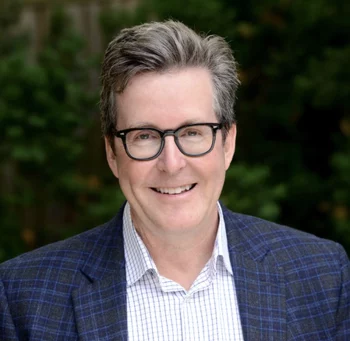
“I think one of the core elements [of CFCC] is generosity. A fundamental openhanded approach to knowledge sharing, to community…. This work has never been more important than it is right now.”
Metcalf and CFCC have continued to work closely over the last ten years, with core funding and most recently, a three-year grant to help fund the creation of the new Poverty Action Unit, which will focus on policy change and advocacy work.
“It’s been an extraordinarily successful evolution of an organization over a relatively short period of time,” Sandy says. “I think one of the core elements is generosity. A fundamental openhanded approach to knowledge sharing, to community. We are enormously proud to support it—this work has never been more important than it is right now.”
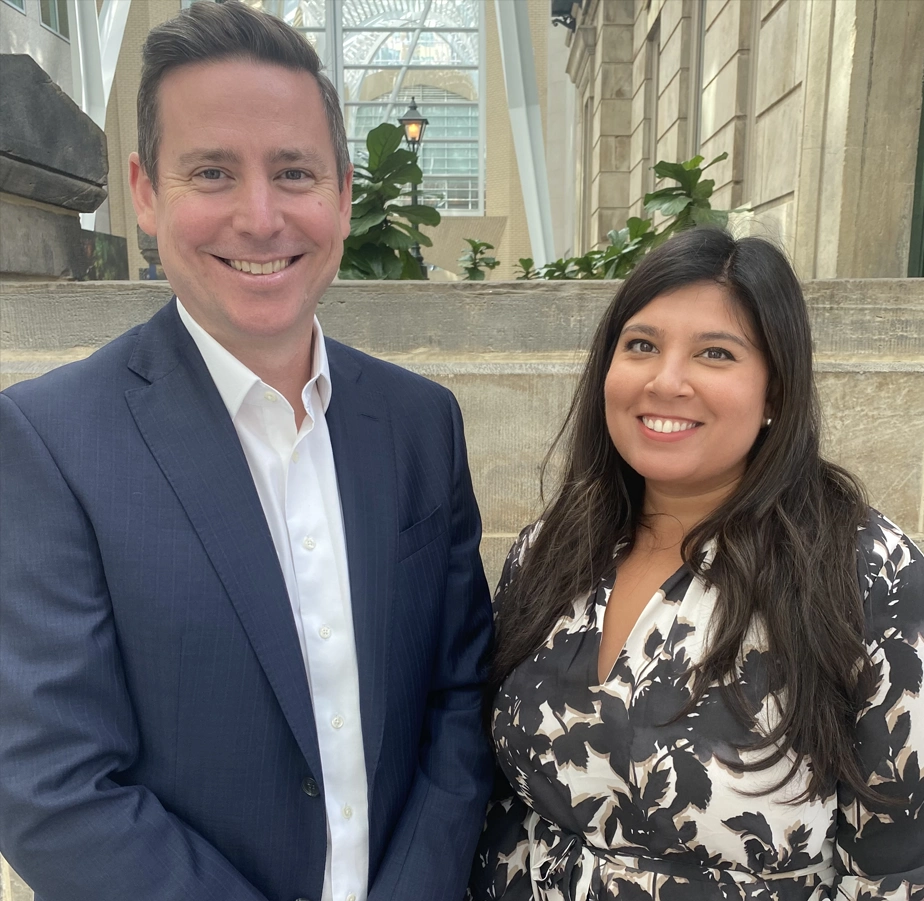
They also enjoy bidding on the unique dining experiences curated by CFCC and its dedicated chef and restaurant partners, says Rachna Patel, auction co-chair and Wallace’s Capital Markets colleague. “People on the trading floor love food,” she explains. “And there is a real competitive spirit during the auction. But they also like to hear how CFCC is growing and how many people are being supported. It’s so tangible. For me, there’s also a lot of pride in how much money we’re raising.”
Of course, organizing such a big event is a huge amount of volunteer work, with Matthew and Rachna working long hours to coordinate items and bidding, as well as get executives on board to host experiences.
“At CIBC we talk a lot about building a culture of care,” Matthew says. “By doing this I think we’re reinforcing that culture of care.”
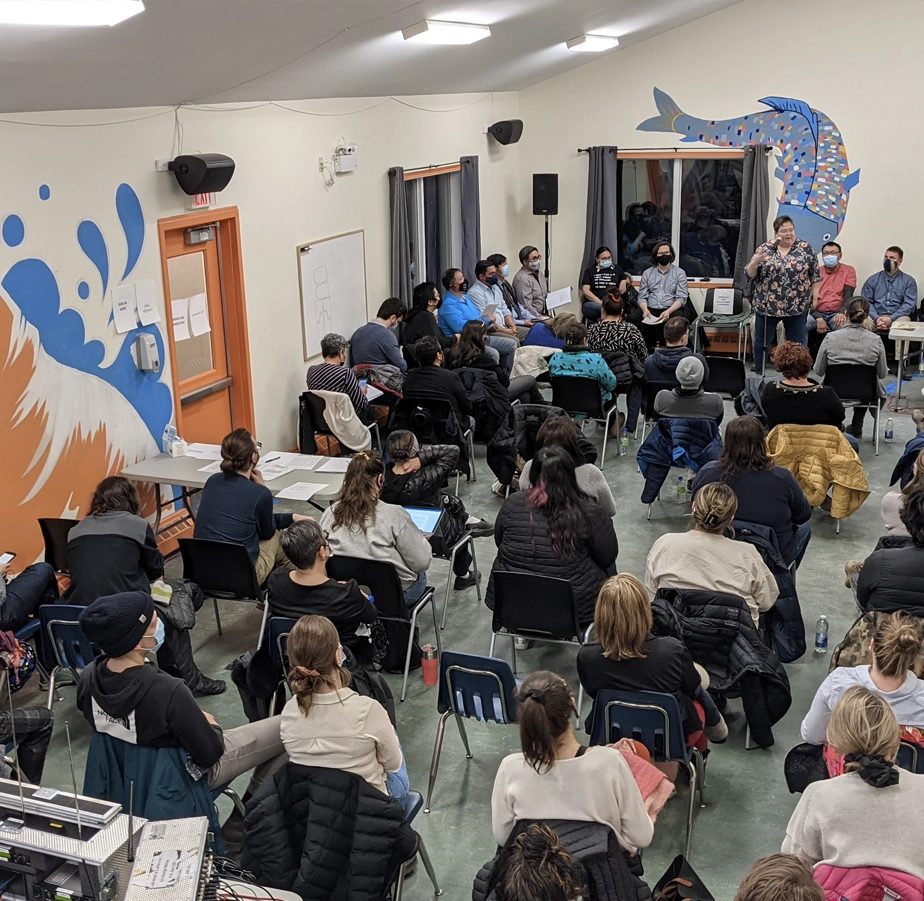
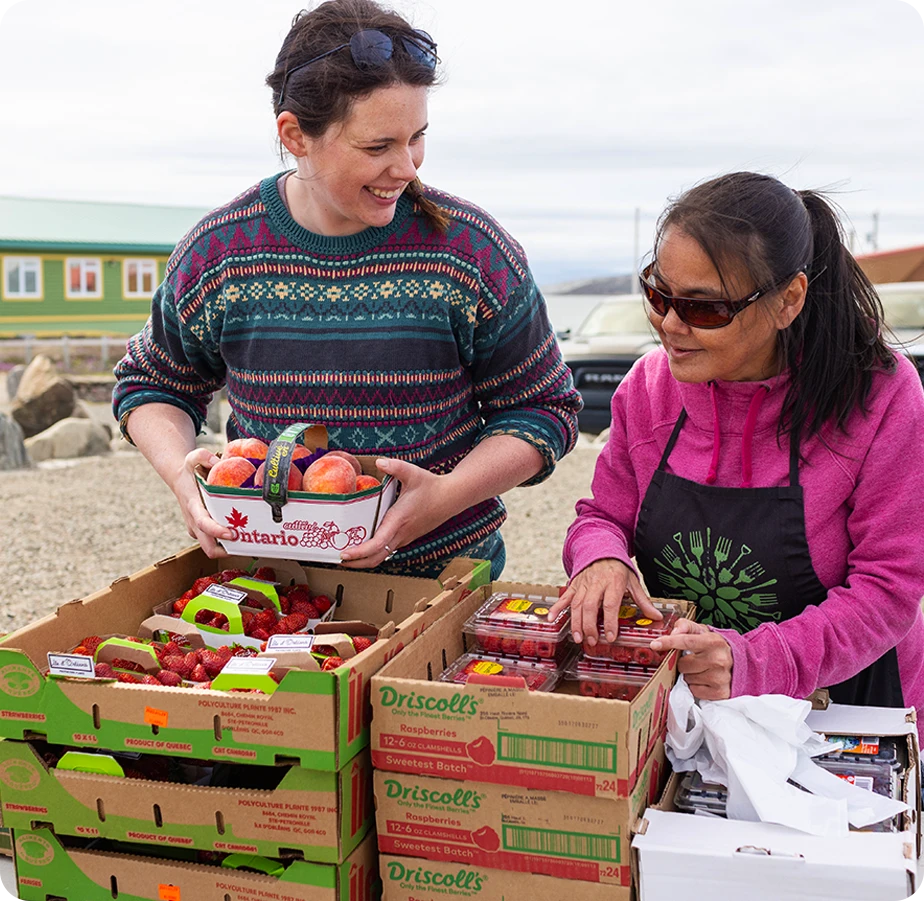
“Food is not only a fundamental biological necessity of life, it can be a potent way of creating community,” Tamara says. “Humans are hard-wired to prepare and eat food together.”
She was also pleased to discover that CFCC works on a national scale, including with the vibrant NorWest CFC in Winnipeg, the city where she and her sisters grew up and their parents lived for many years. “I’ve been in Ontario most of my adult life but I still feel deeply rooted in the prairies,” she says.
The synergy between the family foundation’s priorities and CFCC is strong, especially a shared interest in regenerative agriculture through community gardening, and the necessity for new approaches to food insecurity in this time of deep inequality and climate crisis.
“There’s a real need to strengthen social bonds in our increasingly uncivil society,” Tamara explains. “CFCC ties in with a number of philanthropic areas I’m keen on. To put it a bit crudely, CFCC potentially offers donors a lot of bang for the buck! As a new donor, I’ll be following this work with great interest.”
The synergy between the family foundation’s priorities and CFCC is strong, especially a shared interest in regenerative agriculture through community gardening, and the necessity for new approaches to food insecurity in this time of deep inequality and climate crisis.
“There’s a real need to strengthen social bonds in our increasingly uncivil society,” Tamara explains. “CFCC ties in with a number of philanthropic areas I’m keen on. To put it a bit crudely, CFCC potentially offers donors a lot of bang for the buck! As a new donor, I’ll be following this work with great interest.”

